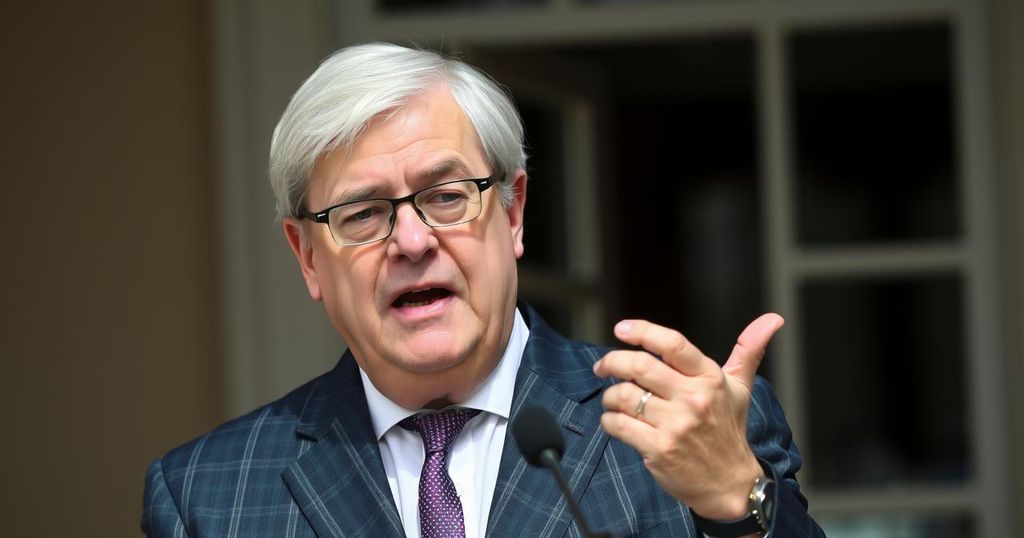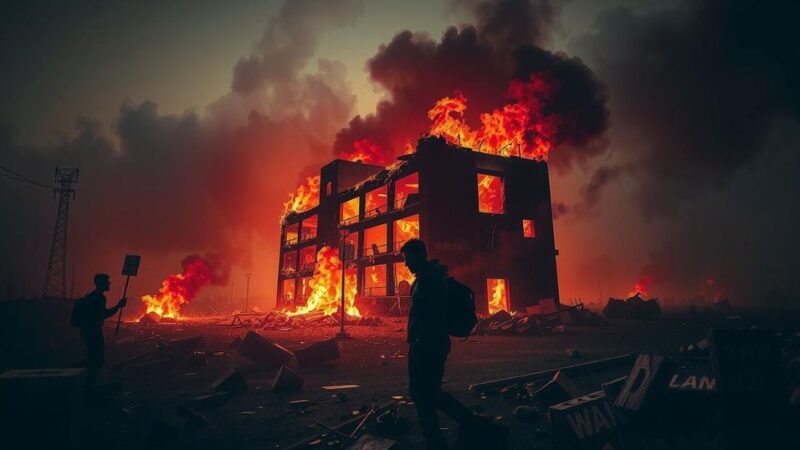German President Frank-Walter Steinmeier dissolved the parliament, scheduling early elections for February 23 in light of the collapse of Olaf Scholz’s government. The situation has been exacerbated by a recent violent attack that reignited debates over security and immigration. Steinmeier urged a respectful election campaign, acknowledging the pressing economic and social challenges ahead.
On Friday, German President Frank-Walter Steinmeier officially dissolved the parliament and confirmed that a general election will take place on February 23. This early election comes in response to the dissolution of Chancellor Olaf Scholz’s coalition government due to internal disputes concerning the revival of Germany’s economy. Additionally, a recent violent incident at a holiday market has intensified discussions on issues such as security and immigration within the country.
In announcing the election date, President Steinmeier underscored the necessity for political stability and requested that the upcoming campaign be approached with respect and decorum. He expressed a desire for a fair electoral process while cautioning against the threats of foreign influence, particularly on social media platforms. Furthermore, he warned that “Hatred and violence must have no place in this election campaign, nor denigration or intimidation… all this is poison for democracy.” Following the election announcement, he also acknowledged the challenges that the next government will face, including economic instability and ongoing global conflicts.
Chancellor Scholz will continue to serve in a caretaker capacity until a new government is established, a process that may require several months to complete. The circumstances necessitating this election highlight the critical political climate in Germany, emphasizing the need for constructive dialogue and effective governance in the face of significant national issues.
The dissolution of the German parliament by President Frank-Walter Steinmeier arises from the collapse of the coalition government led by Olaf Scholz, which had become unstable due to internal conflicts about economic revival strategies. The immediate catalyst for this political shift also involved a tragic incident at a Christmas market, which amplified public discourse regarding security and immigration policies, making the upcoming election highly consequential. This election is perceived as a pivotal moment for Germany, which is currently navigating various challenges including economic uncertainties, international conflicts, and domestic policy debates.
The decision by President Steinmeier to dissolve parliament and call for early elections highlights the urgency for political stability in Germany amid a backdrop of internal government disputes and rising public concern over security issues. By stressing the importance of a respectful and fair election campaign, he sets a tone for the political dialogue necessary to address the pressing challenges facing the nation. As Chancellor Scholz remains in a caretaker role, the outcome of the February 23 elections will significantly influence Germany’s future governance and policy direction.
Original Source: www.kyivpost.com







